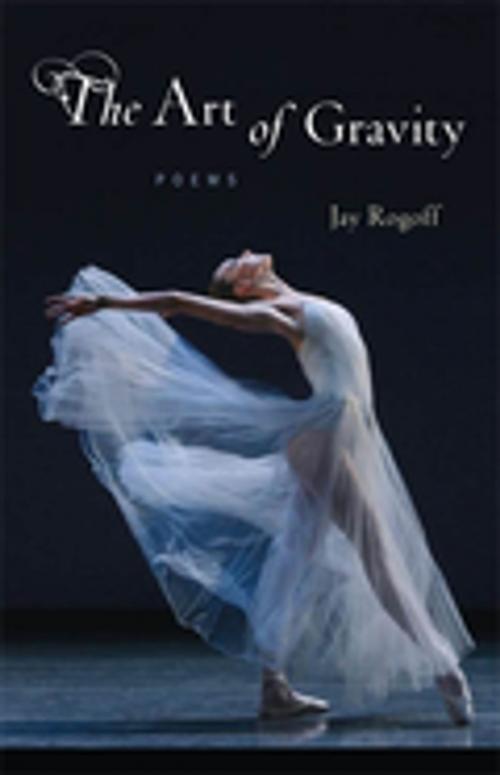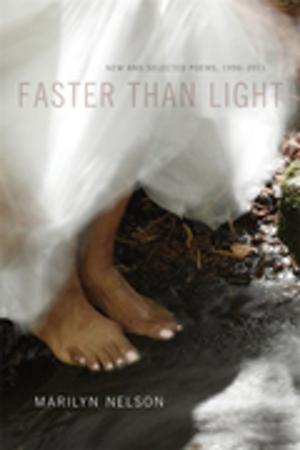The Art of Gravity
Poems
Nonfiction, Social & Cultural Studies, Social Science, Sociology, Fiction & Literature, Poetry| Author: | Jay Rogoff | ISBN: | 9780807138922 |
| Publisher: | LSU Press | Publication: | September 9, 2011 |
| Imprint: | LSU Press | Language: | English |
| Author: | Jay Rogoff |
| ISBN: | 9780807138922 |
| Publisher: | LSU Press |
| Publication: | September 9, 2011 |
| Imprint: | LSU Press |
| Language: | English |
George Balanchine, one of the twentieth century's foremost choreographers, strove to make music visible through dance. In The Art of Gravity, Jay Rogoff extends this alchemy into poetry, discovering in dancing -- from visionary ballets to Lindy-hopping at a drunken party -- the secret rhythms of our imaginations and the patterns of our lives.
The poems unfold in a rich variety of forms, both traditional and experimental. Some focus on how Edgar Degas's paintings expose the artifice and artistic self-consciousness of ballet while, paradoxically, illuminating how it creates rapture. Others investigate dance's translation of physical gesture into allegorical mystery, especially in Balanchine's matchless works. Rogoff pays tribute to superb dancers who grant audiences seductive glimpses of the sublime and to all of us who find in dance a redemptive image of ourselves.
The poet reveals dance as an "art of gravity" in the illusory weightlessness of a "dance that ends in mid-air," in the clumsiness of a Latin dance class's members "trip- / ping over each other in the high school / gym," and in the exploration of ultimate Gravity -- a sonnet sequence titled "Danses Macabres." Ultimately, Rogoff confronts with unflinching precision the dark consummation of all our dancing.
George Balanchine, one of the twentieth century's foremost choreographers, strove to make music visible through dance. In The Art of Gravity, Jay Rogoff extends this alchemy into poetry, discovering in dancing -- from visionary ballets to Lindy-hopping at a drunken party -- the secret rhythms of our imaginations and the patterns of our lives.
The poems unfold in a rich variety of forms, both traditional and experimental. Some focus on how Edgar Degas's paintings expose the artifice and artistic self-consciousness of ballet while, paradoxically, illuminating how it creates rapture. Others investigate dance's translation of physical gesture into allegorical mystery, especially in Balanchine's matchless works. Rogoff pays tribute to superb dancers who grant audiences seductive glimpses of the sublime and to all of us who find in dance a redemptive image of ourselves.
The poet reveals dance as an "art of gravity" in the illusory weightlessness of a "dance that ends in mid-air," in the clumsiness of a Latin dance class's members "trip- / ping over each other in the high school / gym," and in the exploration of ultimate Gravity -- a sonnet sequence titled "Danses Macabres." Ultimately, Rogoff confronts with unflinching precision the dark consummation of all our dancing.















